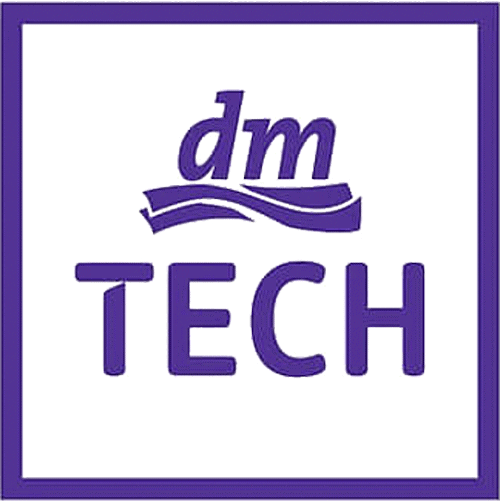How a gathering of visionaries can provide new impulses for logistics technologies.
Our first in-house “leoHackathon” will take place on 25 and 26 of March 2020. We are so excited about this occasion; thus, we would like to tell you a little bit about the fascination “Hackathon” in advance. Let’s start with the terminology.
What exactly is a „hackathon”?
A “hackathon” is a word formation, a kind of fusion, a neologism and is composed of the terms “hacking” and “marathon”. The term “hacking” does not mean any form of negative or even criminal cyber-energy. Rather, the term “hacking” in this context is understood as an approach to approach solutions to problems in new and unconventional ways. To think differently. Embracing new perspectives.
The second part of the word formation probably results from the fact that a “marathon” is a sporting endeavor. Probably both, the “marathon” and the “hackathon”, are a sweaty matter!
Tradition since 1999
The genesis of the Hackathon dates back to 1999. In this year a software for a pocket computer was developed at the Java-One-Conference in San Francisco. celebrated developer John Gage invented at this time the “competition” called “Hackathon”. The task he set for the participants as the ” event’s supervisor ” was: Invent a program in Java for the above-mentioned pocket computers, which can connect to other pocket computers by using the infrared interface.

The basic philosophy of that time has remained: developing creative ideas in an interdisciplinary team, programming prototypes and implementing successful changes. Hackathons are the catalysts of solutions that often find no room in everyday business life.
Who can participate?
A total of 20 people are taking part in our leoHackathon, consisting of colleagues, partners and customers of leogistics GmbH. The constellation of the teams is multidisciplinary from all trades. It is true that the majority of the participants are software architects and developers. After all, they are the namesakes of a “hackathon” and have been genetically interested in “coding” since the beginning of their lives.
But also participants from the professions of project management, content management, consulting or UX design, both male and female, are most welcome in the teams. Thanks to the mixture of people with different mentalities, (solution) creativity is particularly encouraged. The versatile perspectives and the exchange of knowledge of all participants can lead to exciting “out-ofthe-box” solutions.
Hotspots for ideas - our logistics main topics 2020
All topics to be worked on were selected from the suggestions submitted by customers, partners and employees. A “Call for Paper” was launched in 2019. All participants were given the opportunity to submit their proposals for the topics. In addition to current consulting issues (e.g. planning problems), the selected topics also focus on technological issues (e.g. data migration in S/4 HANA).
The following topics made it into the final selection:
- Data Migration on S/4 HANA #Migration #S4
- Cross-platform/system integration test #Cloud #YM #Mobile #Integration
Rarely a complete business process is represented in only one system. For this reason, integrative testing of the complete scenario over and beyond system boundaries is difficult or even impossible. With this topic, an approach is to be found in order to also be able to test cross-system and cross-platform in leogistics d.s.c. solutions in the future. - Integration and use of Blockly in the ABAP environment #JavaScript #ABAP
Blockly is already an established component of leogistics cloud solutions to aid the configuration of rule sets. This is not yet the case in our leogistics d.s.c. on premise solutions, which raises the question of how the framework can also be used in the ABAP environment. - Planning optimization based on location data #Planning #KI
- Determination of throughput times based on logged data #KI #MachineLearning
It is not always possible to estimate in advance exactly how long a task/activity will take. Usually, simple fixed values or complex sets of rules are defined to determine the planned duration. With new technologies such as machine learning, existing throughput times can be analyzed and optimized in order to be able to estimate throughput times even more accurately in the future.

Procedure and elements of our leohackathon
Our Hackathon is composed of the following phases:
| PHASE | Description |
|---|---|
| Reception | We open the event with the reception and clarify the organizational aspects. The aim should be to inform all participants about the course of events and the boundary conditions and to initiate the next phases. |
| Introduction of the topics | Following the reception, all problems or questions to be dealt with are presented, which have already been disclosed in advance in order to arouse the interest of the participants at an early stage and to draw their attention to the event. |
| Brainstorming and team building | If the topics have been made known to the participants, the idea and team-finding phase can take place, in which the participants come together in small groups. As this has already been done in advance, we can skip this phase during the event. |
| Development | After passing through the obligatory phases for organizing the event, the actual focus of the event begins. The development phase. Here the participants are given time over two days to work specifically on new ideas, concepts or products. |
| Presentation | With the final whistle at the end of the development phase each team gets the opportunity to present the results to the audience. Each presentation is only 15 minutes long, so that the participants can focus on the essentials. |
| Award ceremony | After all results have been presented, they are then evaluated on the basis of several criteria (e.g. innovative strength, utility and sustainability) in order to select the winning teams. |
Our goals
Our leoHackathon is the ideal environment for exciting logistics innovations, with the objective of promoting the creativity of each individual. In everyday life, we find little time for tasks outside of our current projects besides our customer projects. In a short, concentrated two-day sprint unit we achieve tangible solutions for the above-mentioned topics. After the hackathon, we can pursue these approaches internally or apply them directly to customer projects. We ourselves are very curious to see how far we get in two days!

Outlook- insight- retrospect
You will find an outlook on our topics in this blog post. We provide you with a behind-the-scenes look at how the participants are tackling the topics they are working on via our social media channel on LinkedIn. Take a look at our Wall between 25 and 26 March. We ourselves are looking forward to the event! We will present the results and the winning team here.
A careful follow-up of the results is particularly important to us, as during the two-day sprint recordings can only be sketched and prototypes cannot be finalized.
All participants will receive feedback from us and a summary of “lessons learned”. In this way we ensure that the new insights are properly recorded, and the next steps are determined.
We also ask for mutual constructive maneuver criticism to become even better at the next leoHackathon!
Would you like to take part in one of our leoHackathons yourself or submit a topic that a whole group should discuss? Please contact us!
If you have any questions about this or other blog topics, please contact blog@leogistics.com.
Thomas Pasberg
Senior Technical Consultant SAP Logistics
Wiebke Gebert
Creative Producer
Book tip: Hackathons – From the idea to successful implementation



